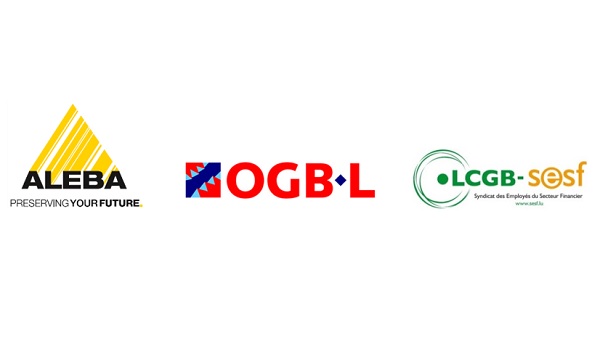
On Friday 24 November 2017, the ALEBA, OGBL-SBA and LCGB-SESF unions notified the ABBL, Luxembourg's banking association, of their intention to partially denounce the Collective Work Agreement currently in effect in the banking sector, thus calling for the official opening of new negotiations.
The unions have also submitted a joint catalogue of demands, detailing the points subject to change, the content of which is similar to the one tabled in November 2016, except for topics that have undergone legal changes, such as the organisation of work.
The ALEBA, OGBL-SBA and LCGB-SESF unions are now calling for the speedy organisation of a first negotiating meeting, at the beginning of January, to take stock of the official negotiations and discussions started since December 2016.
On the merits, and contrary to what the ABBL asserts, the unions have claimed that the difficulties are still numerous, and dogmatic employer positions do not facilitate convergence.
ALEBA, OGBL-SBA and LCGB-SESF, in a common front, also consider that if concrete progress should not be achieved by the end of March 2018, they would be obliged to consider that there is no will of the on the part of the ABBL to reach an agreement guaranteeing adequate working conditions and remuneration for employees in the banking sector, while responding to the need to modernise the current Collective Work Agreement, and taking into account changes in financial centre in Luxembourg. They have also pointed out that if for them employability and training are more than ever at the heart of their concerns, as has been the case for several years now, unions will not be able to accept that employees in a sector that is still flourishing do not again benefit, as it has since 2014, from collective increase mechanisms.
The unions have also considered that the principle of working groups has reached its limits, and now require employers to hold negotiations in plenary sessions, and at a much more sustained pace.
ALEBA, OGBL-SBA and LCGB-SESF have stressed that, that until a new agreement is found, the current collective work agreement remains in force, in accordance with the legal provisions laid down in this framework.








